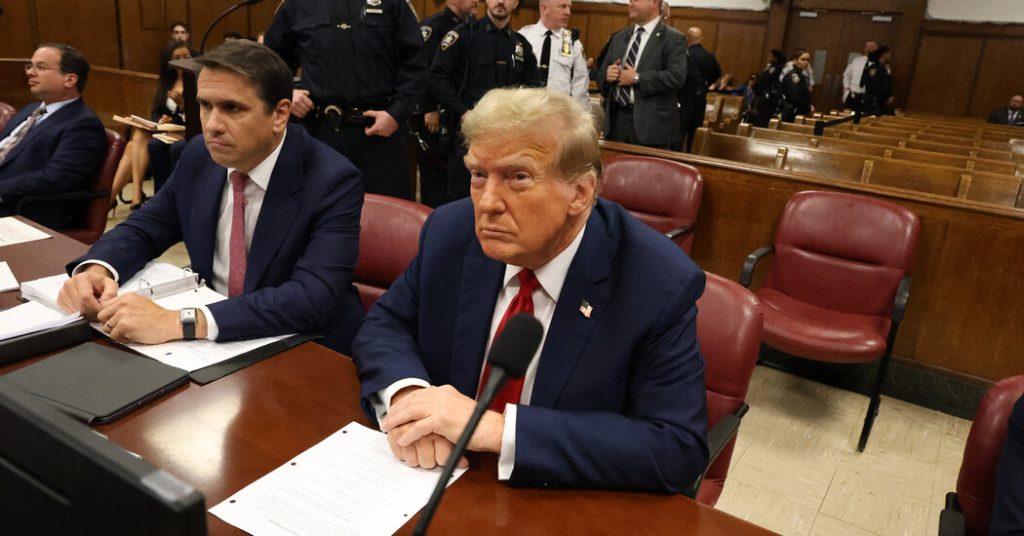After years of investigation and weeks of delay, the criminal case known as the People of the State of New York v. Donald J. Trump went to trial. The trial began with the challenge of selecting an impartial jury, with more than half of the first group of 96 potential jurors raising their hands to say they could not be fair to Mr. Trump. This demonstrated the challenges of picking an impartial panel in a city where the defendant is widely loathed. The judge excused those who could not be fair, and those who remained were asked a list of questions to gauge their eligibility to serve on the jury.
The trial is based on accusations that Mr. Trump falsified records to cover up a sex scandal. He is facing 34 felony counts and could potentially face up to four years in prison if convicted. The trial was born from a long-running investigation that began when Mr. Trump was still president. It has faced multiple delays, but eventually went to trial after a three-week postponement. Mr. Trump is expected to attend much of the trial and may bring his chaos to the courtroom, testing both the judge’s patience and the limits of the justice system.
The jury selection process exposed the lives of everyday New Yorkers, offering insights into their personal and political beliefs. Around two-thirds of the initial 96 potential jurors exited the selection process for various reasons, leaving a pool of potential jurors to be further vetted. The prosecution has argued that Mr. Trump allowed his company to falsify records to hide hush money payments to a porn star during the 2016 campaign, while Mr. Trump denies the sexual encounter ever took place.
The prosecution’s witness list is expected to include figures such as Michael D. Cohen, David Pecker, and Hope Hicks. Mr. Cohen is expected to be a star witness, confronting his former boss Mr. Trump in court. The prosecution will focus on various deals involving The National Enquirer and payments made to individuals to silence damaging stories during the 2016 campaign. The trial is expected to be a remarkable spectacle as a former president faces a part of his past he has tried to bury.
As the jury selection process continues, the judge has ruled that the jurors should remain anonymous to protect their privacy and safety. The trial may take up to two weeks or more before the trial begins, and it could extend into June. Mr. Trump has faced legal challenges and accusations of violating a gag order by attacking witnesses, prosecutors, and jurors. The judge has yet to rule on these violations, and Mr. Trump’s response during pretrial arguments has ranged from irritation to exhaustion.
The trial marks a historic moment where a former president will be judged by a jury in a criminal courtroom. Mr. Trump has repeatedly denied the allegations against him, and the trial is expected to shed light on his actions during the 2016 campaign. The prosecution’s case hinges on Mr. Trump’s involvement in concealing hush money payments and the subsequent cover-up. The outcome of the trial could have significant implications for Mr. Trump’s future legal battles and political aspirations.


